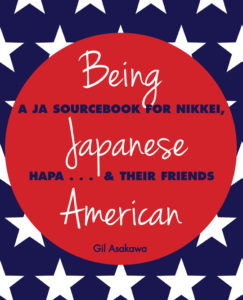Necessary cookies help make a website usable by enabling basic functions like page navigation and access to secure areas of the website. The website cannot function properly without these cookies.
We do not use cookies of this type.
Marketing cookies are used to track visitors across websites. The intention is to display ads that are relevant and engaging for the individual user and thereby more valuable for publishers and third party advertisers.
We do not use cookies of this type.
Analytics cookies help website owners to understand how visitors interact with websites by collecting and reporting information anonymously.
We do not use cookies of this type.
Preference cookies enable a website to remember information that changes the way the website behaves or looks, like your preferred language or the region that you are in.
We do not use cookies of this type.
Unclassified cookies are cookies that we are in the process of classifying, together with the providers of individual cookies.
We do not use cookies of this type.
 Another reason I wish we lived in LA: TaikoProject, the acclaimed genre-expanding taiko group based in LA, brings its talents home to perform its "Rhythmic Relations 2011" show this weekend outdoors at Noguchi Plaza in front of the Japanese American Cultural & Community Center in Little Tokyo, 244 S. San Pedro St., Los Angeles.
There will be two performances, at 2 and 7:30 pm; tickets are $30 - $35 + service charges. Tickets are available online at www.jaccc.org or by phone (213) 680-3700. The group will be joined by Bombu Taiko, Kitsune Taiko and Loma Pacific Taiko, and the show will feature special guest Ryutaro Kaneko (former Artistic Director for the superstar Japanese taiko group Kodo).
You may have caught TaikoProject this week on "The Voice," the terrific NBC singing competition show (we're cheering for Dia Frampton, and not just because she's Asian American -- hapa Korean). You may have also seen TaikoProject way back in 2006, playing on a Mistubishi car commercial (I remember at the time, thought it was totally cool to see a taiko group on a commercial).
Here's how TaikoProject describes itself:
Another reason I wish we lived in LA: TaikoProject, the acclaimed genre-expanding taiko group based in LA, brings its talents home to perform its "Rhythmic Relations 2011" show this weekend outdoors at Noguchi Plaza in front of the Japanese American Cultural & Community Center in Little Tokyo, 244 S. San Pedro St., Los Angeles.
There will be two performances, at 2 and 7:30 pm; tickets are $30 - $35 + service charges. Tickets are available online at www.jaccc.org or by phone (213) 680-3700. The group will be joined by Bombu Taiko, Kitsune Taiko and Loma Pacific Taiko, and the show will feature special guest Ryutaro Kaneko (former Artistic Director for the superstar Japanese taiko group Kodo).
You may have caught TaikoProject this week on "The Voice," the terrific NBC singing competition show (we're cheering for Dia Frampton, and not just because she's Asian American -- hapa Korean). You may have also seen TaikoProject way back in 2006, playing on a Mistubishi car commercial (I remember at the time, thought it was totally cool to see a taiko group on a commercial).
Here's how TaikoProject describes itself:




 Japanese Americans know about internment. My wife Erin's parents, grandparents and great-grandparents on both sides were rounded up from Sacramento County, Calif. and eventually imprisoned at Rohwer, one of two concentration camps in Arkansas built during World War II to house Japanese Americans out of fear and racial hysteria. There were 10 in all, including Camp Amache in desolate southeastern Colorado. (Note: There's been a gradual move towards the use of the term "concentration camps" because that's the term the U.S. government used for them when they weren't using euphemisms like "assembly center" or "relocation center.")
For many older Japanese Americans, the first thing they ask of each other when they meet other JAs is, "what camp was your family in?" and they're not talking about summer camp.
Japanese Americans know about internment. My wife Erin's parents, grandparents and great-grandparents on both sides were rounded up from Sacramento County, Calif. and eventually imprisoned at Rohwer, one of two concentration camps in Arkansas built during World War II to house Japanese Americans out of fear and racial hysteria. There were 10 in all, including Camp Amache in desolate southeastern Colorado. (Note: There's been a gradual move towards the use of the term "concentration camps" because that's the term the U.S. government used for them when they weren't using euphemisms like "assembly center" or "relocation center.")
For many older Japanese Americans, the first thing they ask of each other when they meet other JAs is, "what camp was your family in?" and they're not talking about summer camp.
 I was honored to give a presentation and moderate a panel discussion in April at the Japanese American National Museum, “
I was honored to give a presentation and moderate a panel discussion in April at the Japanese American National Museum, “

